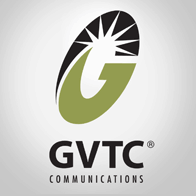
Cicconi
Jim Cicconi, AT&T’s chief lobbyist told Politico the company’s practice of encouraging civil rights and charity groups to advocate on its behalf was “entirely natural,” and claimed opponents of the proposed merger of AT&T and T-Mobile were doing the same thing.
“The difference is that we seem to be having success and they are not. We attribute that entirely to the obvious benefits of the merger and the history of what we have stood for as a company,” Cicconi said. “What seems unnecessary is for opponents to attack the motives and credibility of those who have chosen to support our position and not theirs.”
AT&T has made substantial contributions, both financial and through involvement by key AT&T executives on various boards of directors of non-profit groups, as part of its corporate strategy. Often, many of the non-profit groups involved thank AT&T by submitting letters of support for various business activities AT&T is engaged in, including public policy debates, mergers and acquisitions, and legislation that could impact the company’s bottom line.
On occasion, the connection between AT&T’s large financial contributions and the advocacy letters that often result becomes a point of contention with rank and file members of the organization, as happened in June with a gay rights organization that culminated in the resignation of its president and an AT&T-connected board member.
But more often than not, the corporate money-and-influence-connection goes unnoticed by the constituents of these organizations, many of whom will be disadvantaged, charge critics, by an outcome favorable to AT&T.
Politico explored the links between AT&T executives, lobbyists, money and civic groups and charities and discovered plenty:

Somehow, letters from the National Urban League and...
• Norelie Garcia, associate vice president of federal affairs at AT&T, who is an executive committee chair on the National Puerto Rican Coalition’s board of directors. The group wrote to the FCC May 27.
• Jerry Fuentes, president of AT&T for the Arizona and New Mexico regions, is the vice president for corporate policy on the National Hispanic Caucus of State Legislators’s business board of advisers. The organization wrote to the FCC backing AT&T on May 26.
• Barbara Winn, AT&T’s Sacramento-area director of external affairs, is listed on the letterhead of the Greater Sacramento Urban League as executive committee chairman in the filing the group sent to the FCC supporting the deal June 17.
• Tanya Lombard, assistant vice president of public affairs at AT&T, is a board member of the National Coalition on Black Civic Participation. The group wrote to the FCC May 25, saying “We believe it will help fulfill President Obama’s vision of an America in which everyone has affordable access to high-speed Internet service.”
AT&T is listed as a sponsor of the Cuban American National Council , the National Puerto Rican Coalition, and among the National Coalition on Black Civic Participation’s 35th anniversary partners. Meanwhile, it costs $25,000 annually to be a full member of the National Hispanic Caucus of State Legislators’s business board of advisers, as AT&T’s Fuentes is.
In 2009, the AT&T Foundation gave the local chapters of the Urban League in Chattanooga, Tenn.; Columbia, S.C.; and Knoxville, Tenn., a total of $45,000.
The National Urban League in 2009 received more funding — $100,000 — from the Sprint Foundation. But Sprint, which has been the most vocal corporate opponent of the AT&T/T-Mobile deal, does not have executives on the boards of any of those groups, the company said.

...the National Action Network turned out to be nearly identical.
Politico found many of America’s most influential civic rights groups received private briefings from AT&T executives promoting the deal — meetings which ultimately led to letters of support from those organizations, despite their having little or no input from those opposed to the merger. AT&T also has dispatched “advocacy kits” to many groups filled with sample letters and talking points the company encourages groups to use as a template for letters of their own. Not counting on the laziness among many tasked with writing the letters ultimately dispatched to the Federal Communications Commission, there is often a striking resemblance of correspondence favoring the merger.
Politico notes the text in two filings submitted last month to the FCC by the National Urban League and Al Sharpton’s National Action Network regarding the acquisition are nearly identical.
All of this disturbs ColorofChange, a civil rights group not on the payroll of either those supporting the merger or opposed to it.
“There are long-standing relationships AT&T has with these organizations that we think unfortunately have led some of them to take AT&T’s position on an issue that will negatively impact black people,” Rashad Robinson, executive director of ColorofChange told Politico.
AT&T just disclosed its latest lobbying reports, showing the company has increased its lobbying budget by nearly $1,000,000 compared with the same quarter last year — spending $6.84 million during the first quarter of 2011 alone on lobbying the federal government.
Sprint Nextel, seen by many as the primary opponent of the deal, actually reduced its own lobbying expenses during the same period, spending just $583,000 during the first quarter, down 25% from the $774,100 spent a year earlier.


 Subscribe
Subscribe








